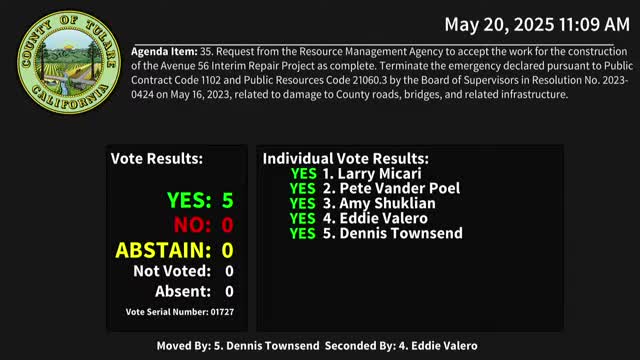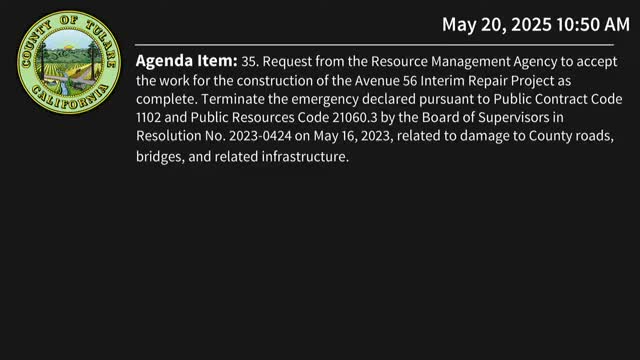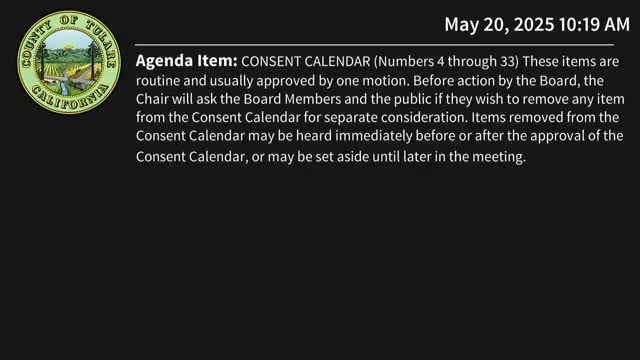Article not found
This article is no longer available. But don't worry—we've gathered other articles that discuss the same topic.

County audit finds worker‑comp customer service gaps; CorVel and risk staff lay out fixes and RFP plan

Board accepts Avenue 56 interim repair and ends storm emergency contracting authority

Tulare County animal services warns shelter capacity strained, seeks kennel expansion and staffing

